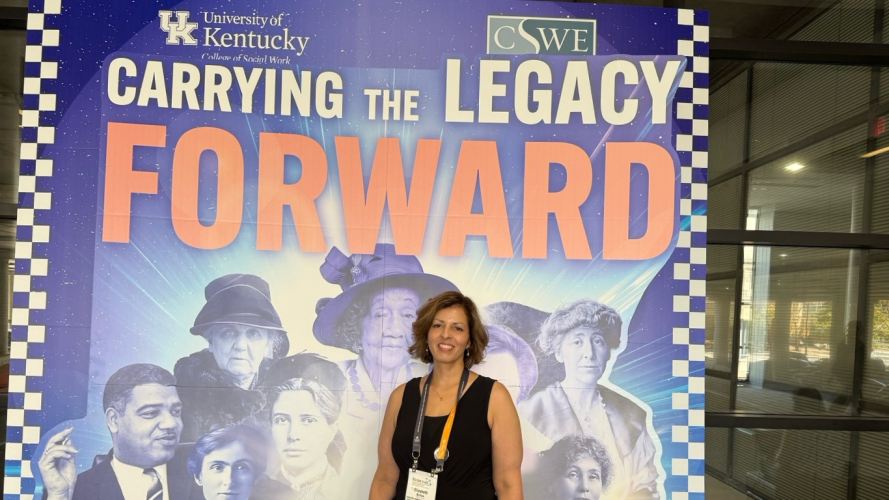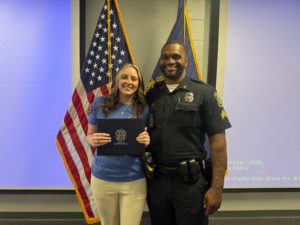Kansas City, MO — Nearly one in three women worldwide will experience physical or sexual violence in her lifetime. As a result of survivors and their advocates’ grassroots advocacy and organizing, the Violence Against Women Act became law in 1995. The passage of VAWA marked the acknowledgment by the United States government of the government’s responsibility to change legal, social and cultural norms and the need for dedicated support services and improved response from the justice system.
In alignment with this drive for change, the Council on Social Work Education (CSWE) introduced its Violence Against Women and Their Children (VAWAC) track, a dedicated focus to raise awareness, foster research, and support social work education on these critical issues.
At this year’s CSWE Annual Program Meeting (APM), Elizabeth Brillon, an alumna of the University of Kentucky College of Social Work (CoSW), took the stage as Chair of the VAWAC track. With an unyielding dedication to breaking cycles of violence, Brillon used her platform to emphasize the value of resources, ongoing support, and structural change in the lives of both survivors and the social workers who support them.
Brillon’s three-year role as VAWAC track chair is pivotal, she explains, in effective communication with CSWE staff, co-chairs, and key stakeholders to ensure the success of the track and amplify research for violence prevention. “It is a fulfilling role, and one I consider so valuable to the field,” Brillon noted. Her efforts include evaluating session submissions with her co-chair, engaging deeply with emerging research, and giving feedback that shapes the presentation landscape for VAWAC at CSWE’s APM.
Beyond the logistics of her role, Brillon takes a hands-on approach to raising awareness among educators and students. “Both my co-chair and I offer a presentation specific to the VAWAC track each year,” she said. “We discuss the latest relevant legislation and share resources from national organizations. This year is especially meaningful, as it marks the 30th anniversary of the Violence Against Women Act, originally authored by current U.S. President Joe Biden, whom I’ve had the honor of meeting.”
Her presentation invited educators and students into an open forum on VAWAC’s purpose, national policies, and emerging statistics on violence against women. She encourages these groups to use the track as a resource, making herself accessible through CSWE’s platforms and professional networks to continue these critical conversations well beyond the conference.
Reflecting on her journey, Brillon attributes much of her resilience to her time as a Doctor of Social Work student at the University of Kentucky, a foundation she says has emboldened her in the fight against social injustices. “As a recent graduate, I’m equipped with the skills to overcome self-doubt and use my voice effectively. This experience has expanded my network, and that’s essential for the change I hope to see in this field,” she shared.
Looking to the future, Brillon hopes to make a lasting impact through teaching, publishing research, and dismantling systemic injustices in social work practices. Her message to colleagues is one of purpose and persistence: “Write down your purpose somewhere,” she advised. “The work can be challenging, especially for those in trauma-related fields. Give yourself the grace to pause when needed. A single ripple, however small, has the power to create a wave.”






